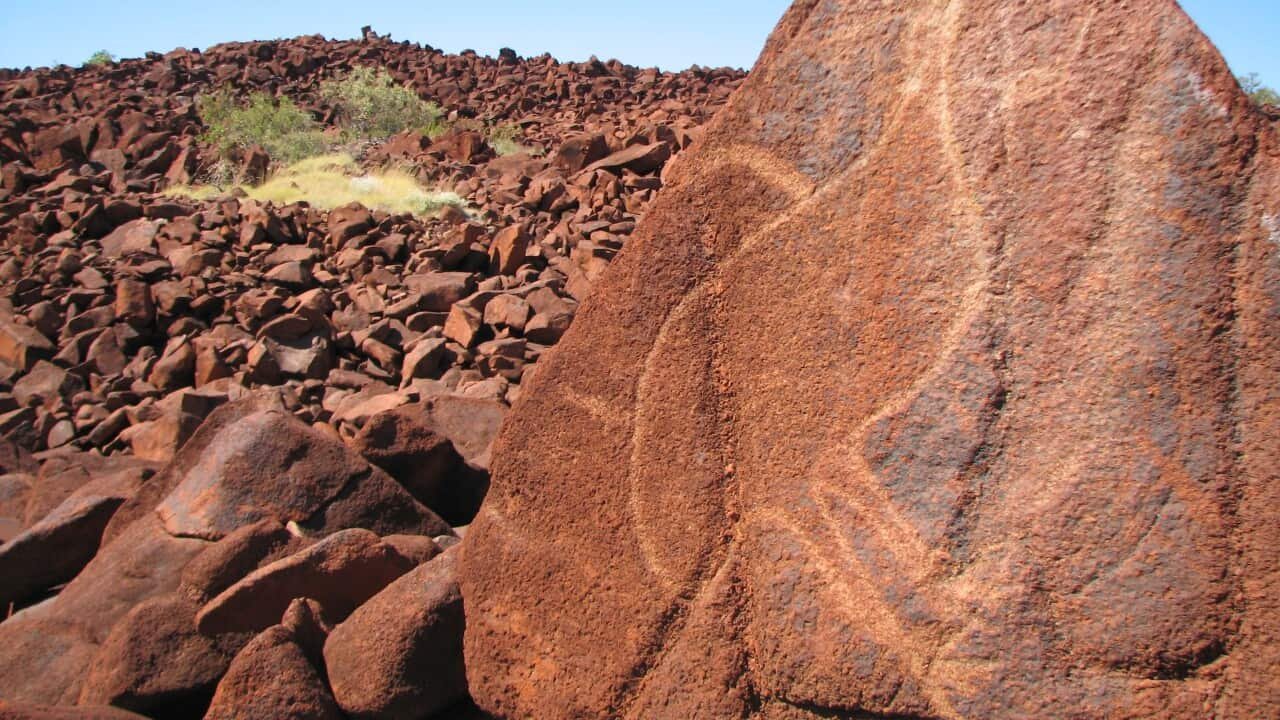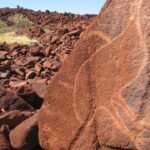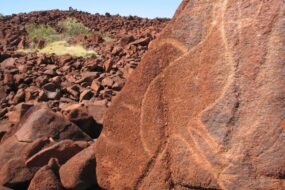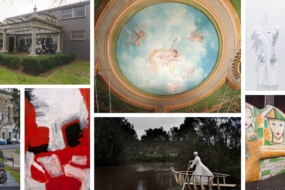Environmentalists fear the extension of a gas project could jeopardise the future of an ancient Indigenous rock art collection after it was listed as a World Heritage site.
The Murujuga rock art landscape in Western Australia was listed by the United Nations Educational, Scientific and Cultural Organisation (UNESCO) as a heritage site on Friday after intense lobbying by the federal government.
“For more than 50,000 years, the Ngarda-Ngarli people have protected and managed this significant land and seascape — and today, I am proud to announce that Murujuga will receive another level of protection via the World Heritage system,” Environment Minister Murray Watt said while visiting the organisation’s headquarters in Paris.
“Achieving World Heritage status ensures stronger protections under Australian legislation and will allow the world to celebrate this unique cultural landscape,” Watt added.
Murujuga contains the world’s largest, densest and most diverse collection of rock art engravings — known as petroglyphs — and some are estimated to be more than 50,000 years old.
They depict animals, plants and human figures, and are visible due to the colour and contrast between the removed varnish layer and the underlying brighter weathered rind of the host rocks.
The site was previously put forward to UNESCO in 2023 but Australia’s application was referred back in May.
UNESCO recommended state and federal governments address concerns that nearby acid emissions, including those from Woodside’s Burrup gas hub, were degrading the art.
The North West Shelf gas project is seen with a petroglyph of a turtle at Murujuga Cultural Landscape in Burrup Peninsula, Western Australia. Source: Supplied / Save Our Songlines / Conservation Council of Western Australia
The peninsula in northwest WA near Karratha is home to two gas plants, a fertiliser plant and iron ore and salt export facilities.
While environmentalists welcomed the heritage listing, they warned that the Woodside project extension could cause further damage.
“The world is now watching,” Australian Conservation Foundation chief executive Kelly O’Shanassy said.
“The onus is on the Australian government to make sure the values recognised by UNESCO are not jeopardised by ongoing industrial pollution. If the federal government is serious about protecting Murujuga and making sure it is not moved to an “in danger” list, Senator Watt should reject the gas hub’s proposed expansion,” O’Shanassy added.
Mardathoonera woman and Murujuga traditional custodian Raelene Cooper, who was at the UNESCO meeting, said she welcomed the global recognition of Murujuga but cautioned that industry could still harm the rock art site.
“This is a momentous day for our old people and our future generations, to have Murujuga’s outstanding universal heritage values recognised by the world,” she said.
“Meanwhile, fertiliser plants are still being built around our sacred sites and polluting gas plants will emit toxic acid on our rock art for another 50 years.
“We will continue to fight for protection for this very special place, and the world is now aware of what we are up against.”
Watt said World Heritage nomination “had the free, prior and informed consent of the five language groups who all come together to care for Murujuga today”.
Woodside said the listing was “well-deserved global recognition of the petroglyphs and the unique living cultural values of Murujuga” to Australia and the world.
“Woodside has been a proud supporter of the World Heritage nomination and assessment process. We look forward to continuing to work closely with the Murujuga Aboriginal Corporation and Traditional Custodians on the continued protection and management of this globally significant area,” the company said in a statement sent to SBS News.
Greens Leader Larissa Waters joined the chorus of advocate voices in urging Senator Watt to cancel the approval for the North West Shelf project.
“UNESCO had warned that Woodside’s gas plant threatened the longevity of the rock art prior to the listing, but Minister Watt successfully lobbied other nations when he should have simply rejected Woodside’s climate bomb extension in the first place,” she said.
Woodside has estimated that keeping the North-West Shelf operating until 2070 could lead to emissions of up to 4.3 billion tons tonnes of carbon dioxide equivalent (CO2-e), the majority of which will come from exported fossil fuel products.
That’s over nine times Australia’s total annual emissions, which currently sit around 440.2 million tonnes CO2-e.
Senator Waters added that world heritage laws should be bolstered to better protect listed sites.
Australia has 21 properties on the World Heritage list, which includes the Budj Bim Cultural Landscape, Uluru-Kata Tjuta National Park and the Great Barrier Reef.
UNESCO added several other sites to its list, including the Xixia Imperial Tombs in China and the Faya Palaeolandscape in the United Arab Emirates.











